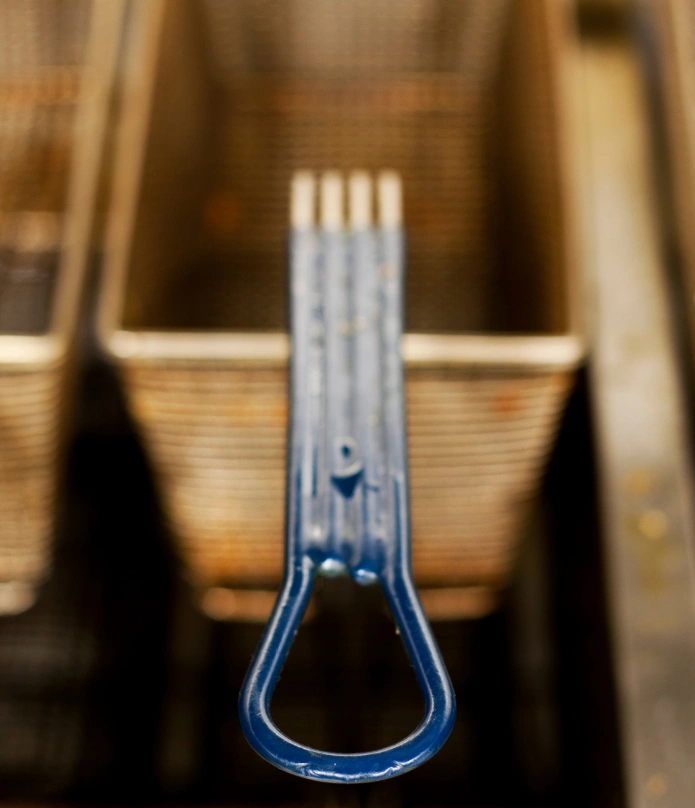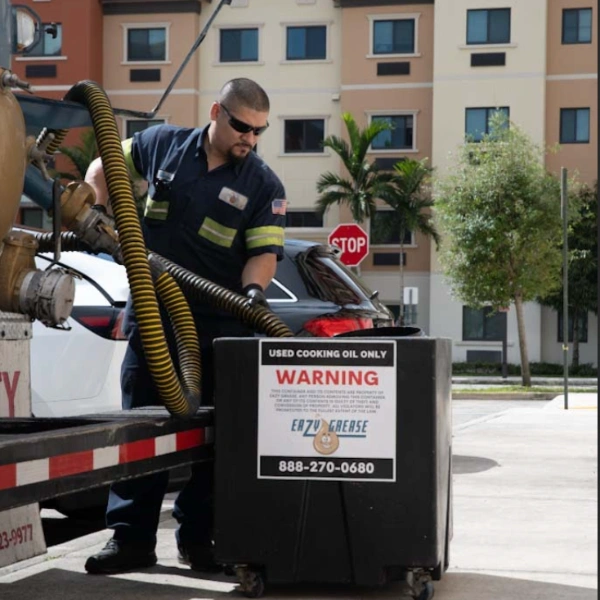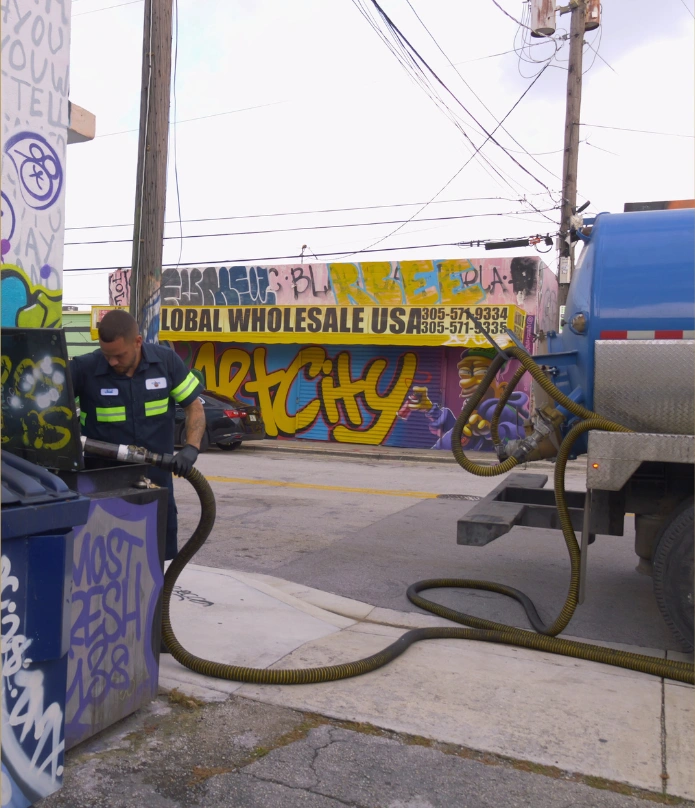Used Cooking Oil Pickup and Recycling Services in Miami FL | Top Rebates
Eazy Grease provides the most reliable used fryer oil pickup and recycling services in Miami-Dade for restaurants, hotels, and commercial kitchens from South Beach to Brickell. Our professional UCO collection offers FREE containers, reliable pickups, and region’s highest rebate rates.
Get Started With Service.
No Hidden Fees or Contracts.

Why Choose The Leading Used Cooking Oil Collection Provider
Restaurants from Ocean Drive to Wynwood trust Eazy Grease for superior UCO collection that outperforms competitors like Mahoney Environmental, Grand Natural, DAR PRO, and Restaurant Technologies. We provide faster response times, higher rebates, and better customer service throughout the 305.
Key Benefits:
✅ Free Bins that cooking oil directly can be poured into or transfered from oil filtration system.
✅ Scheduled pickup – weekly, bi-weekly, or monthly service
✅Highest rebates in Florida
✅ Same-day emergency collection response
✅ 24/7 customer support from our Miami service team
✅ Certified and Licensed hauler businesses trust
WHY WORK WITH US
TOP NOTCH HOSPITALITY STANDARDS: Our professional UCO collection meets the demanding standards of South Beach hotels, Brickell restaurants, and other foodservice businesses. Professional, discreet pickups during off-hours maintain your reputation.
EMERGENCY COLLECTION: 24/7 emergency oil recycling when business is booming during Art Basel, Ultra Music Festival, or peak tourist seasons. Rapid response prevents kitchen shutdowns and health violations.
FREE EQUIPMENT: Receive complimentary storage equipment including theft-prevention locks, spill containment systems, and automated transfer options for high-volume Little Havana and Coral Gables kitchens.
GREASE TRAP CLEANING: Professional grease trap maintenance ensures Miami-Dade health department compliance and prevents costly FOG-related drain backups in city’s competitive restaurant market.

Competitive Advantages Over Miami Competitors
HIGHER REBATES: We pay 25-50% more than Mahoney Environmental, Grand Natural, and DAR PRO, offering higher rates for quality used cooking oil compared to competitors’ lower payouts.
MIAMI EXPERTISE: Only cooking oil collection service specializing in South Beach hotels, cruise port restaurants, and downtown venues with flexible scheduling around major events and tourist seasons.
FASTER RESPONSE: Same-day quotes and emergency pickup versus days-long delays from other Miami waste oil collectors.
LOCAL KNOWLEDGE: Understanding of local regulations, hurricane preparedness requirements, and multilingual customer service for Magic City’s diverse restaurant community.

Our Service Area
We provide professional cooking oil recycling throughout South Florida including:
- South Beach, Brickell, Wynwood, Little Havana
- Coral Gables, Coconut Grove, Aventura, Doral
- Miami Beach, Key Biscayne, Homestead, Kendall
Get Started with Miami Used Cooking Oil Collection
Ready to earn top dollar from your used cooking oil while ensuring proper disposal? Call now for same-day service setup. Recieve your cooking oil containers within just a couple days in most areas. Join top restaurants requesting service and earning maximum rebates through professional cooking oil collection and recycling.
